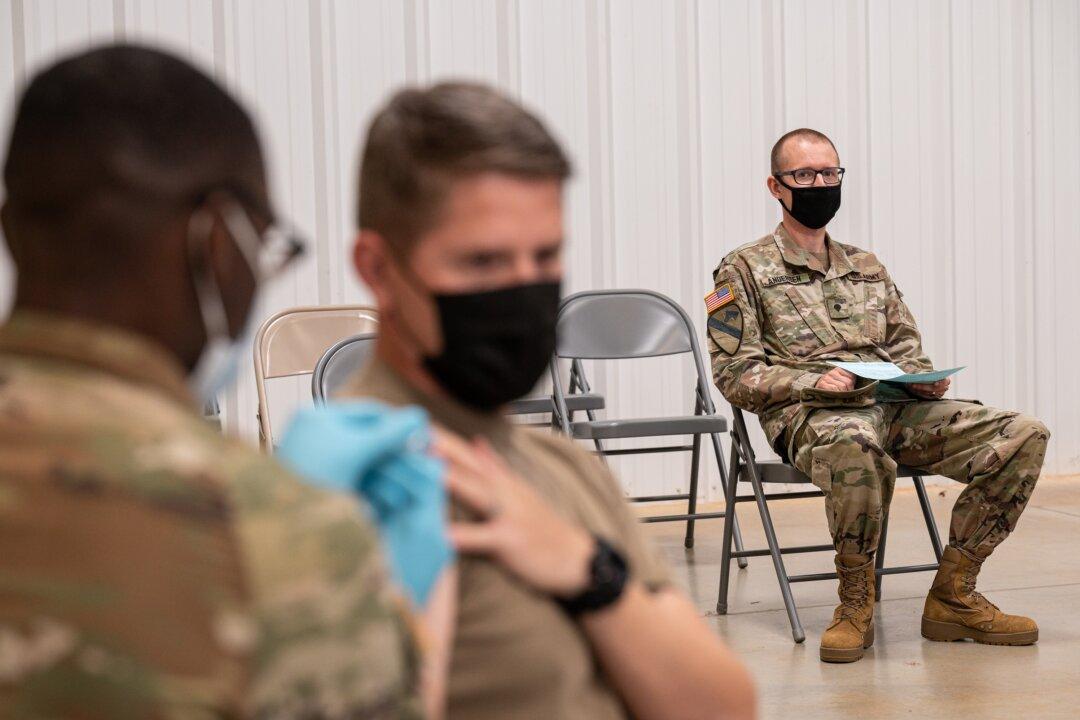A Texas federal judge has granted relief for six U.S. Army soldiers and four U.S. Military Academy West Point cadets who were denied requests for religious accommodation from receiving the mandated COVID-19 vaccine.
Judge James Wesley Hendrix on Wednesday ordered the preliminary injunction that prohibits the U.S. Army from taking any disciplinary, punitive, or separation measures against the service members in the case. (pdf)





